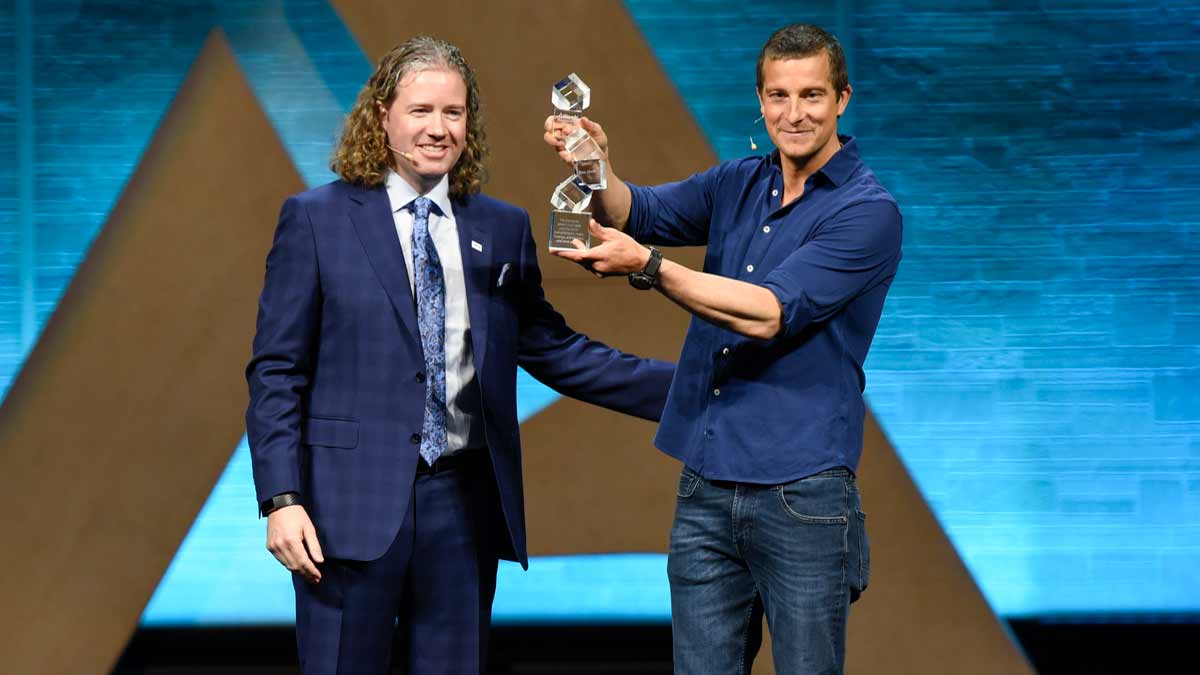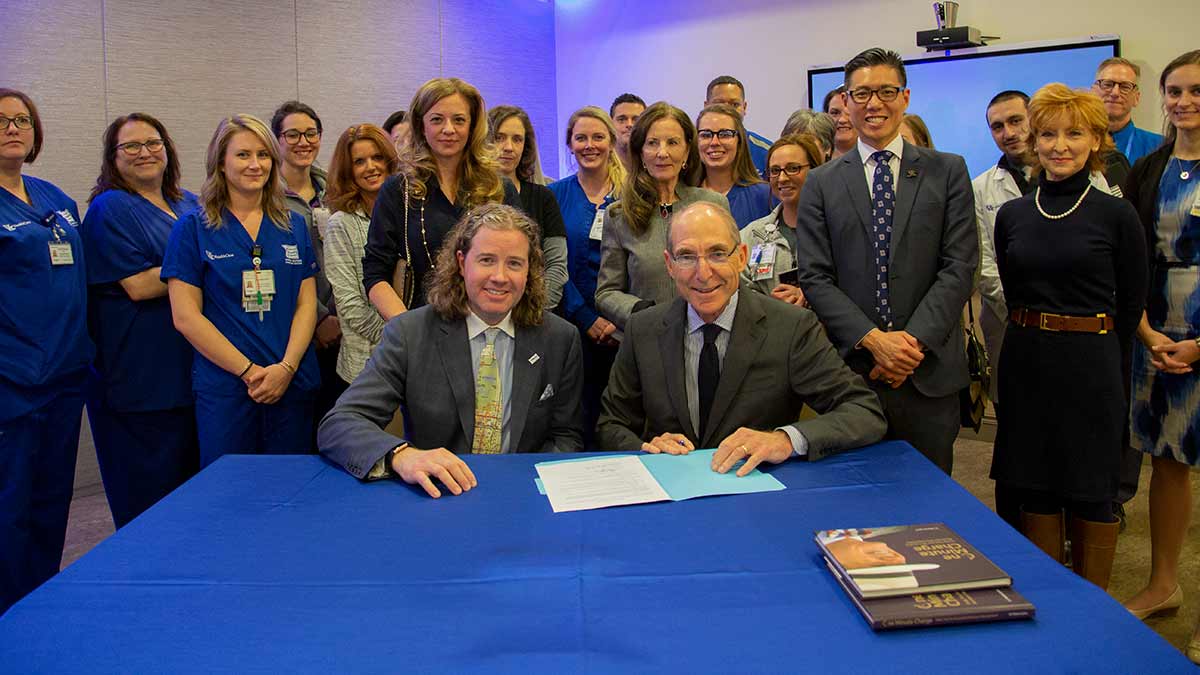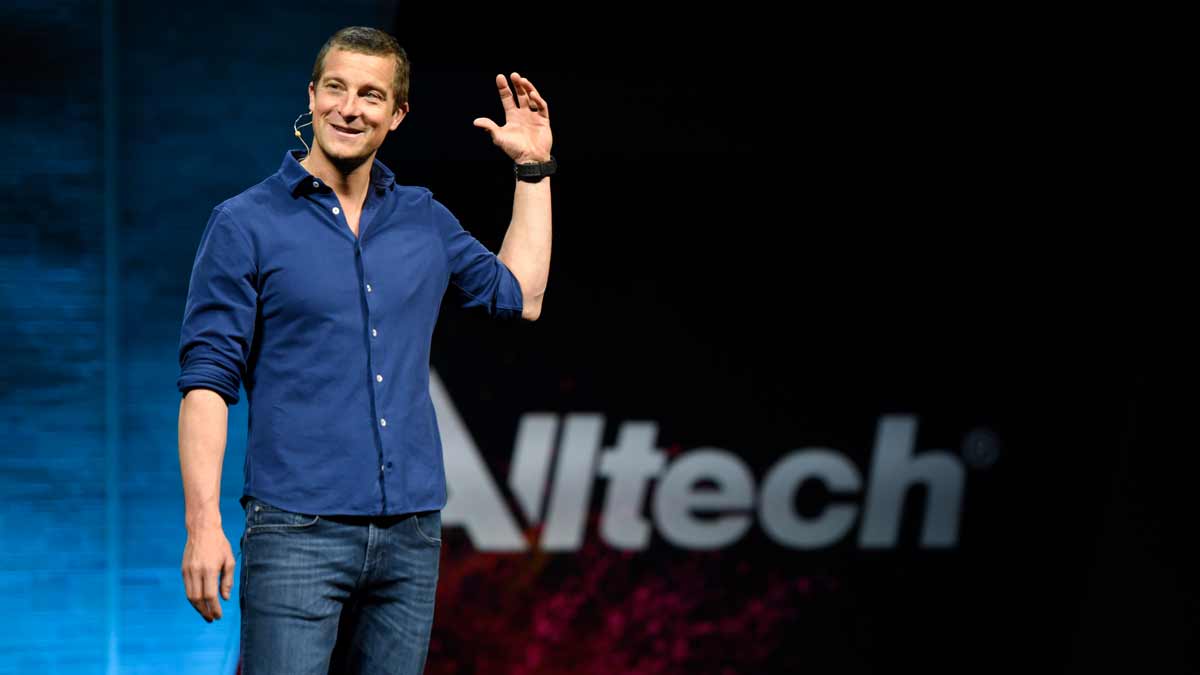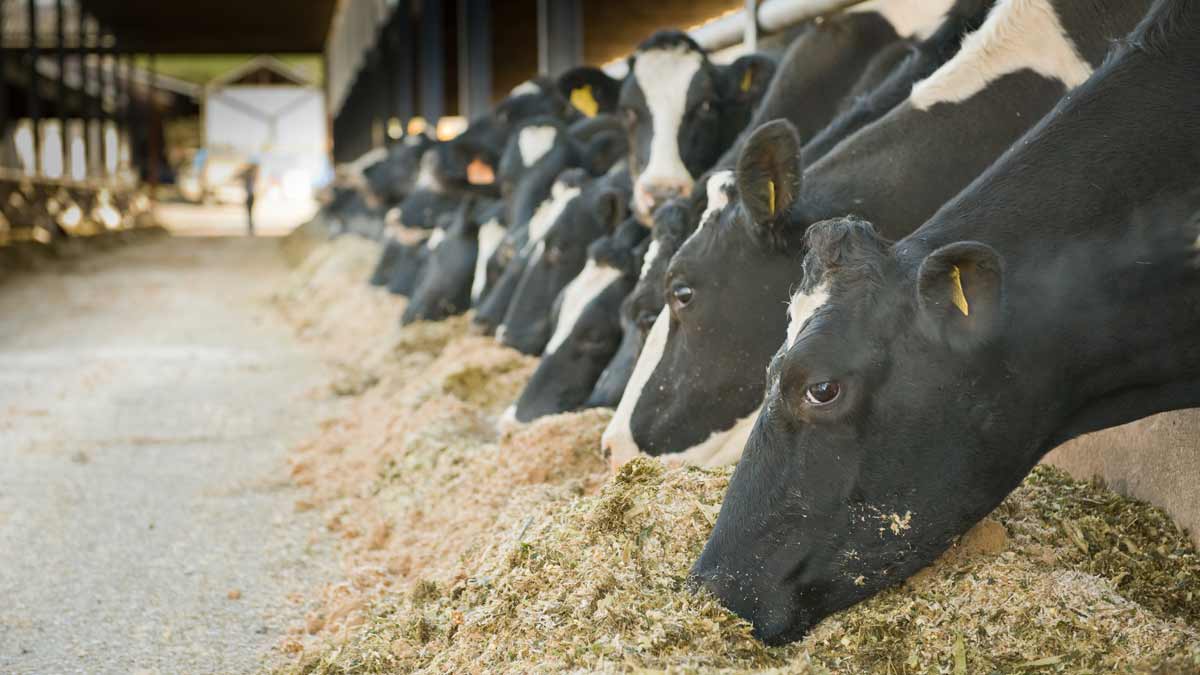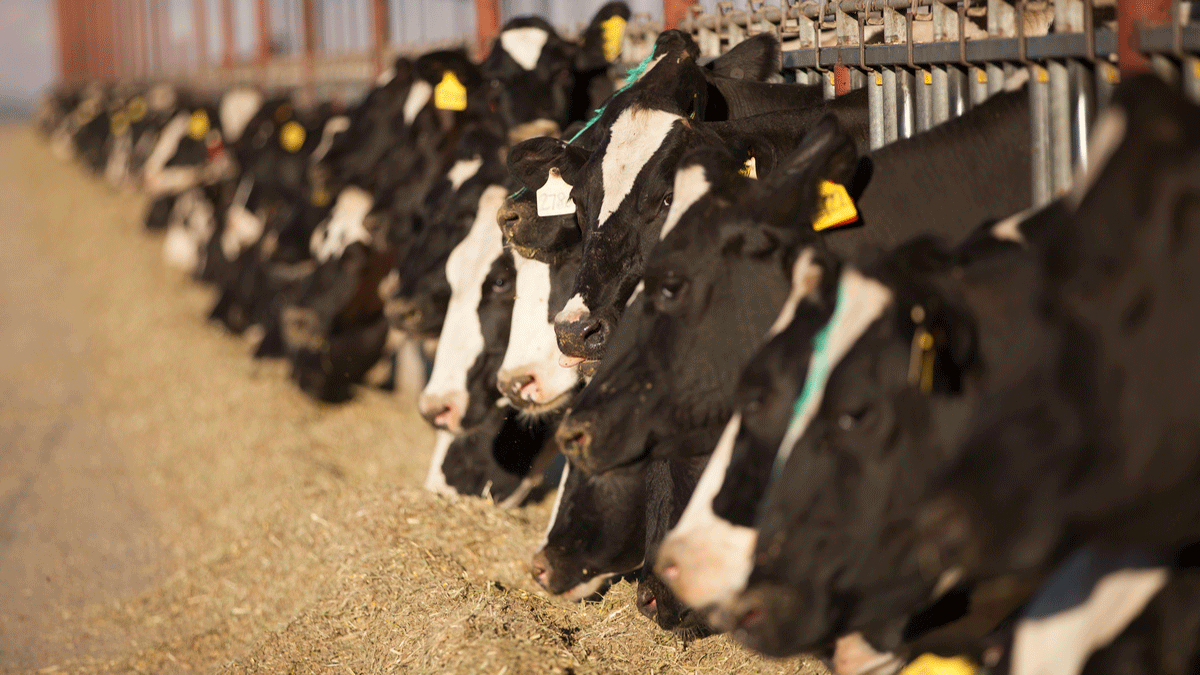The following is an edited transcript of Tom Martin's interview with Crystal Mackay. Click below to hear the full audio:
Tom: Crystal Mackay is president of the Canadian Center for Food Integrity, and she joins us to talk about what's driving consumer demand for transparency in the food chain — and how that demand is being addressed — as well as the risks and rewards of high-tech agriculture. Thank you for being with us, Crystal.
Crystal: Thank you.
Tom: If you could first talk to us about social license: what is that? How is it defined?
Crystal: Sure. Social license is defined as the freedom to operate without restrictions — or minimal restrictions. It's a term the oil industry coined back in the '90s, which is something they felt they should aspire toward. So, we've been studying it in agriculture and food for some time, and we actually measured it in some public trust research in both the U.S. and Canada in the last few years. We found that, basically, it’s not a good, attainable goal.
Tom: So how does social license apply to the farm-to-table food supply chain?
Crystal: Well, the concept is, “Can you have freedom to operate, grow and innovate everything — from the farm through food processing, right through to grocery and restaurants, with minimal restrictions?” While that's an admirable goal, when we actually measured and studied it, we decided that the real goal should be public trust. What we really need to work toward is public trust in the food system, and the outcome of that may be social license, but social license on its own is not the right goal for us.
Tom: You mentioned measurement. A lot of these items are intangible, so how do you ensure that your activities remain aligned with what may sometimes be fluid community expectations?
Crystal: Great question. We've been working with a lot of researchers from across North America to help us learn how to measure these things. For example, there is a peer-reviewed and published model on how to earn trust in food and how to measure it. This past year, we worked on a model on transparency: “What are the seven elements of transparency and what does it take to achieve it?” So, just like everything that's getting better at segmentation and measuring data, we can do the same thing on the public trust side, but it is absolutely a new territory for us.
Tom: What kinds of expectations have driven consumer demand for transparency in farming and food?
Crystal: The expectation for transparency and food right now is for anybody to be able to pick up their phone at any minute and ask and find the answer to any question on any ingredient on any food product that's on their plate. The demand for transparency in the food chain is unprecedented. We've never seen demand like this before.
Tom: What are the risks of falling short of those expectations? Do you have any anecdotal examples?
Crystal: Absolutely. Whenever there's lack of transparency or perceived lack of transparency, it's most obvious when something goes wrong. I always say that your investment in public trust should be like putting credits in the public trust bank — knowing that, when you're dealing with food, Mother Nature, people, animals and equipment, something is going to go wrong at some point. So, whenever something goes wrong, that's when the spotlight gets shone on your company, your sector or your product, and then the questions start coming. "What is your custody of command? What's in place to make sure that didn't happen?" I look at our efforts in transparency as an investment in public trust. We should be doing it proactively, knowing that it will become acutely obvious and at an extreme cost to your business when there's a problem if transparency is not there.
Tom: Would you say it's a public relations issue, a communications issue or even something bigger — a movement?
Crystal: I used to view this as a communications [endeavor] — I don't think we could advertise our way to public trust. I've worked in this field a long time — I worked in communications, I communicated with the public — but in the last few years, I’ve definitely shifted to viewing it as a business risk that needs to be managed. It really needs to be viewed across the company, organization and food system as a business risk that needs to be managed — an investment that everybody needs to make first, when then allows you to do your work in innovation, efficiency, et cetera.
Tom: I guess it's fair to say that public trust is something of a “holy grail.” What are the challenges to sustaining it?
Crystal: Well, it's absolutely something that needs to be earned every single day. For every animal that's cared for, every food product moving through a food company, every item that's on your tray at the fast food restaurant, trust can be eroded at any place along the food system. Our motto is, "We're helping the food system earn trust." The verb "earn" is really important; it's not something that can be taken for granted.
Tom: Do you have a specific strategy for sustaining — actually, for building — public trust and, then, keeping it?
Crystal: Well, our job is to help the food system earn trust by providing research, which provides an understanding of how to do it better. We have a resource called Best Food Facts, which is an online resource center of experts [who] answer questions. There are forums for dialogue, bringing the food system together at places like this to have the conversation about what we can do better together — B2B, to start — and then moving through the chain to the consumer. So that's the base, I would say, for what it takes for a successful game plan.
The next big play needs to be in engaging with consumers. There are lots of great efforts in that space. But, I really feel, when we look at our research on where the public trust is in our food system, we definitely need some improvement.
Tom: There have been significant — and that's an understatement —advances in agricultural technologies in recent years. Which developments impressed you the most?
Crystal: Well, we learned a little bit about CRISPR this morning [at ONE: The Alltech Ideas Conference]. Of course, I've heard a bit about it, but the explanation we were given here was really excellent, and I definitely see the most exciting uses in technology there. The other aspect, I would say, is just in the ability to capture big data and learn from it — try to aggregate it and learn best management practices right through the segmentation of consumers, which is what I do. There are a lot of exciting things to be done there.
Tom: I guess it could be said [that] there's a data deluge out there right now, and consuming that information and making sense of it is a challenge in and of itself, isn't it?
Crystal: Well, I heard a statistic a couple of weeks ago that there's officially, now, more content being generated every second than there are human hours to consume it. So, our next challenge is not the volume of data but, to your point, how to synthesize it, gather the insights we need and, then, put it to work.
Tom: Among these recent advances in farm automation — data analysis and artificial intelligence — which of these things do you think holds the real potential for addressing and maybe even solving big problems, like food shortages?
Crystal: Well, if we think about something like food and security and then tie it back to things like food loss and waste — if we think about what percentage of that good food that we grow ends up in the garbage somewhere — there are absolutely huge opportunities, through data collection, to figure out where all the food loss spots are and the distribution that's needed, which is absolutely key to getting it to the people that need it most. So, I think those big dots are out there; they just haven't been connected.
Tom: So, what risks presented by modern agriculture concern you the most?
Crystal: Well, there’s definitely a shift in our society. We've grown up in an age where progress is inevitable and embraced because that's just what makes everything bigger and faster and better. We're now getting a spot — at least in the developed world and here in North America — where progress is just possible but not inevitable, and that's a shift.
The other piece is that science can say if we can — it doesn't answer if we should. So, it’s this concept of making sure that we have sustainable practices that are ethically grounded first, then scientifically verified and economically viable. I think, in the agri-food space, we've spent a lot of time on “scientifically verified” and “economically viable” and not enough time on “ethically grounded.” There is the importance of having good engagement with the public and understanding their concerns in the ethically grounded piece early on in technology — not waiting until just before you launch it.
Tom: What are the issues that are driving large food companies to adopt new methods of production?
Crystal: This is obviously a complex topic in terms of what drives new methods of production. There are global shifts in standards and requirements — things like global sustainability requirements would be one example. If global buyers and retail and food services are putting in global standards, we see that going through to food companies right back to the farm and saying, “This is the expectation for food safety,” for example. The move to global standards, I would say, is a big driver.
Then, of course, there's always the chase for the competitive advantage. What can our company do to have a competitive advantage? If we look at the public trust space right now, we would see there's a lot of absence labeling: “What can we take out of our product?” We call it absence labeling — marketing "GMO-free," "gluten-free," "raised without” something. This would be a reverse trend — from the movement toward a faster, bigger, better technology to moving back to what would be considered older, natural — “If my grandparents couldn't pronounce it, I don't want it on the label.” We see a lot of companies trying to get the competitive marketing advantage there.
Tom: Is it realistic to look for coordination or collaboration among agricultural and food production competitors, and are there any examples of that?
Crystal: Well, our whole business model relies on collaboration. We are in a new economy — a shared economy — where people share cars and houses, and [there are now] different models that didn't exist even ten years ago. The challenge is that the value chain was developed for competition, not collaboration. We're being asked to put values into the value chain when we've got fierce competitors across, up and down the supply chain.
With the Center for Food Integrity, we have individual farmers who produce all different types of crops, animals and commodities, and food companies that are fierce competitors right through the retail and food service, all putting their money toward the same common vision. I call that pre-competitive thinking and collaborative thinking, and it goes back to your earlier question about the big pressure. No company is equipped to deal with the demands for transparency on their own; every ingredient in every food product on every grocery shelf is huge. A shift in thinking is going to be required to say, "What can the food system do to meet that demand?" An individual company will still have to answer questions.
Tom: Okay. Shifting gears just a tad, if you could tell us about your organization's interest in the issues of food loss and waste.
Crystal: We just started a new program that I'm very excited about. It really demonstrates our organization's values around what it takes to earn trust, which is doing the right thing, providing a trusted assurance system and, then, communications.
Food loss and waste has been identified as a bit of an Achilles' heel for the food system and a legitimate issue that needs some improvement. We just secured major funding — together with a partner group called Provision Coalition — through the Walmart Foundation to do exactly what I described with the three pillars of food loss and waste.
Starting with 50 food companies, we'll do food loss and waste audits for a very meaningful assessment on how they can reduce food loss and waste. When we multiply that times 50 food companies, we expect some big results to say we really put a big dent in food loss and waste.
Our piece is [that] we will be studying the public and gaining a better understanding of consumers. We understand the stats show that consumers are a big piece in this food loss and waste equation. We don't think the public has good awareness or the tools to improve it. We’ll be studying the public piece.
The third part is the communications. We'll be populating that resource I mentioned called "Best Food Facts" with university experts that will give public consumer information — consumer-friendly information — about what you could do to better buy food, store food and reduce food loss and waste in your own home.
I'm very excited about the program because it's a very meaningful demonstration of how to earn trust with a program to reduce food loss and waste, and [the] third-party auditors will ensure that it has integrity and has the communications aspect to understanding consumer concerns and giving them credible information to actually help them change their behavior.
Tom: Speaking of information, it's your organization's goal to provide information without advocating for a particular brand. I'm curious — how is your information structured so that you avoid the perception that it's sponsored content?
Crystal: Oh, yeah, great question. Credibility is so important in this space. I mean, if you don't have credibility, you might as well just light your money on fire and not bother to show up. When we were bringing the Center for Food Integrity to Canada and the U.S., we spent a lot of time thinking about developing the model to be the most credible.
The first piece that's really important is that the breadth of our funding is really broad. We have 36 member companies and associations, about 200 funding partners, and we have about 800 individual donors. People like you and I can chip in toward the same cause. By nature, you're not advocating for a specific outcome or profit or a specific company. We're very transparent about who funds us, so that's really important. You can look at our annual report on our website anytime.
When it comes to the content piece — “Best Food Facts,” the resource I mentioned — it's only provided by third-party experts. There are university experts, government experts and independent dieticians that can answer any question about what's on your plate. The content has nothing to do with the funding. There's a very big divide there.
Tom: Do you find yourself in a position of having to fight or combat this distrust and pessimism that is so prevalent in today's world? And if you do, what tools do you rely on to accomplish that?
Crystal: I embrace skepticism, first of all, because I think that's a good base. I encourage critical thinking. I think that the biggest tool I use is to embrace choice and to encourage that skepticism — to say, “Thank you for being curious about your food. Thank you for asking questions; that means you care and you're interested.” That mindset is a lot easier to engage than someone who’s disinterested.
I also think a big part of it is listening to people. This is a two-way conversation, not a lecture or a monologue. Part of our work in the research is to really try to understand the silent majority, what's really concerning the public, or what do they really have questions about. I think that translates into more authentic communications, so it's not viewed as PR and advertising. We really want to understand your concerns and have a conversation. It also includes acknowledging areas that need improvement, to say, “You know what? It's not all a sunny day with butterflies. There are things that aren't great, and we need to be part of that solution and acknowledge those things.”
Tom: Crystal Mackay is president of the Canadian Center for Food Integrity. Thanks for being with us, Crystal.
Crystal: Thanks for having me.
Crystal Mackay spoke at ONE: The Alltech Ideas Conference. Click here to learn more about the industry topics up for discussion at ONE19.
